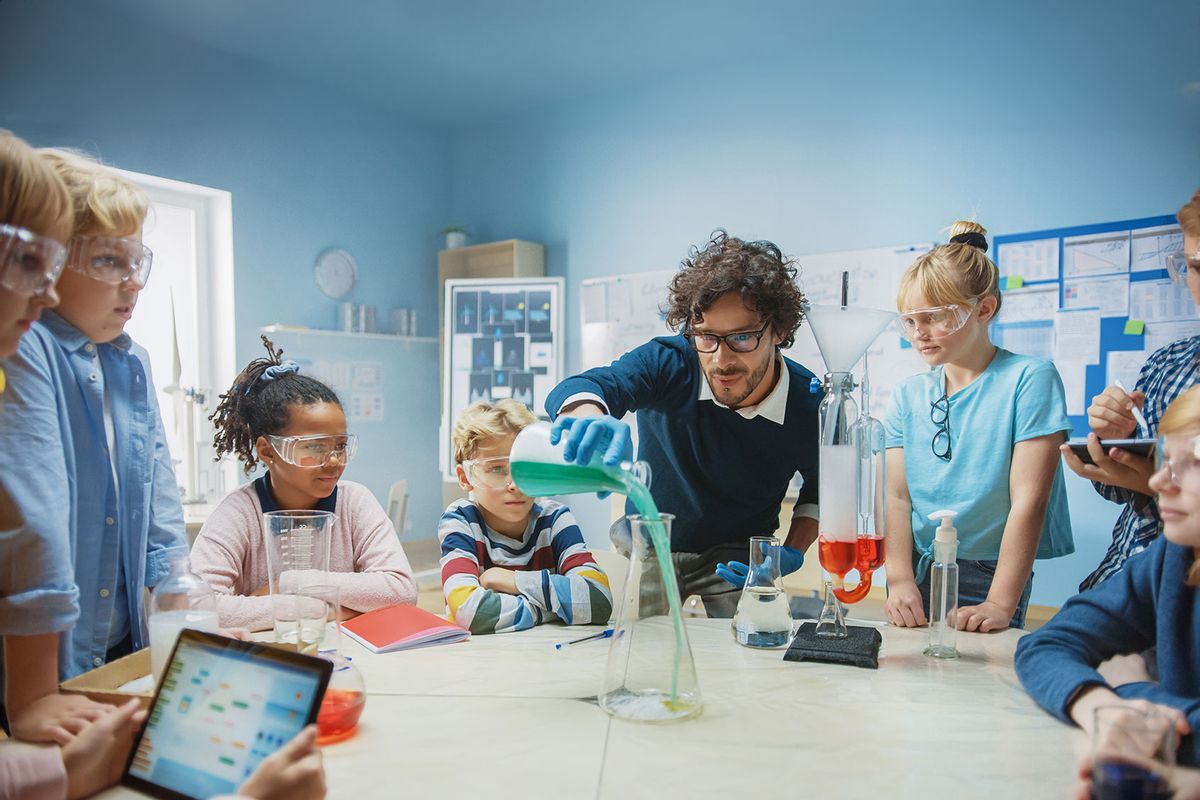Academics need a holistic approach to deal with AI in science

GLOBAL
![]()
In many physical and natural sciences journals, it is now commonplace to see articles that illustrate the uptake of artificial intelligence in science. Consider, for example, a recent article published in Nature about the marvels of an AI tool in predicting biomolecular interactions.
AI is now used in a variety of ways in different fields of science, from making discoveries in astronomy and modelling and predicting medicinal drugs to conservation of wildlife.
The dizzying pace of developments of AI use in science is raising questions about how science education in universities is incorporating these recent developments. Some important questions are emerging for science education in universities: Is science changing because of AI use? How can science teaching and learning in universities reflect the recent developments in science?
Such questions may seem to only concern future research scientists but in fact, when science is considered in all its might, education of a whole set of professionals is at stake because science is a complex endeavour that concerns much more than research outputs like scientific knowledge and research processes like scientific methods. Science is also a culture. It has institutions. Scientists possess social values.
Incorporate various dimensions of science
In considering how AI is now impacting how science works, it will be beneficial to consider the various aspects of science so that a broad range of university students can be prepared for their future careers in science-related jobs. Some science students may choose to stay in academic or industry research in science.
Others may opt to move to organisations that allocate science funding or tech companies that develop AI tools. Yet others may work for organisations that are developing guidelines for ethical use of AI in scientific research as some datasets used in training AI tools lead to algorithmic biases that may even have fatal consequences.
To prepare future professionals whose jobs will rely on science and AI, the science curriculum in universities will need to incorporate the various dimensions of science.
In our research in education, we characterised science as a system that has cognitive (for example, reasoning), epistemic (for example, knowledge), social (for example, values such as respect for evidence) and institutional (for example, funding for research) dimensions.
When we have such a broad and inclusive account of what science entails, the implications for science learning are not only about the cognitive and the epistemic but rather all dimensions of the system because all these dimensions are interdependent on each other.
How can scientific knowledge be produced if scientists don’t possess social values such as honesty about data and respect for intellectual property rights? In other words, the epistemic and the social aspects are interrelated. Who will be doing the scientific thinking if there is no funding to support the livelihoods of scientists as well as other resources that are needed for scientific investigations? The cognitive and the institutional aspects are interrelated.
Such a vision of science is intrinsically holistic, highlighting that science operates as a system with different components that cannot be dissociated from each other. If they are, then we are only seeing an incomplete picture of science that can potentially also be dangerous. For example, AI tools may be used to design drugs for destructive ends if ethical norms of the community are not considered.
A holistic approach to science is key
At a time when AI use in science as well as in higher education is exploding at an exponential rate, what gets reflected in university science education is likely to be sporadic and fragmented. Some students may have experiences in independent research studies in the tech industry or with their advisors who are already using AI tools in their research. Others’ experiences may not be as extensive, being restricted to some lectures.
Students’ exposure to the different aspects of science may vary, potentially omitting some important components. Having a holistic approach to considering the different aspects of science is likely to help university tutors in mapping out which aspects of the AI-based science they will cover and when.
University tutors will not be able to cover all the different aspects of science in one lecture or a laboratory session. The point here is not that all aspects are covered in all teaching sessions. Rather, the issue is that there is a meaningful and inclusive progression in the coverage of the different aspects of science impacted by AI to ensure that students are well prepared with a balanced account that helps them function in the various potential roles that they will play in the future.
In some instances, the experiences may come out of the university environment in placements in the tech industry. One heuristic that can guide the road map of planning teaching sessions and monitoring students’ progress is the FRA wheel.
This has been used as a teaching tool for various purposes often highlighting the difficulties it exposes about understanding the social and institutional dimensions of science, which is typically limited due to their minimal coverage in school curricula.
The FRA wheel refers to the various cognitive, epistemic, social, and institutional aspects of science as mentioned earlier. For example, the epistemic aspects include aims and values of science such as objectivity and accuracy of evidence, as well as scientific methods such as experimentation. The institutional aspects include the financial, political, and organisational aspects of scientific institutions.
The tool can potentially help to identify which aspects of science are being impacted by AI and what to teach about it in higher education. Other tools may also be developed that take on a similar approach for capturing, in an inclusive manner, a holistic picture of science.
In the society of acceleration where research and innovation are developing at a fast rate, we need to ensure that science education does its part and supports future professionals who will work in science-related jobs. Understanding how science works in the age of AI will be enriched if it is inclusive of a holistic approach to science.
Sibel Erduran is professor of science education and director for research in the department of education at the University of Oxford in the United Kingdom. She is also editor-in-chief of Science & Education and an editor of the International Journal of Science Education.







